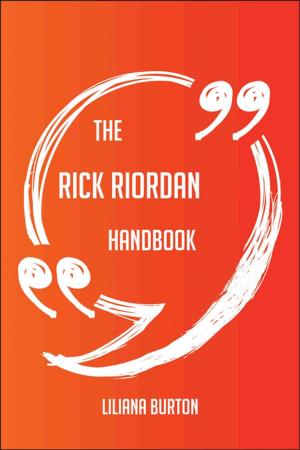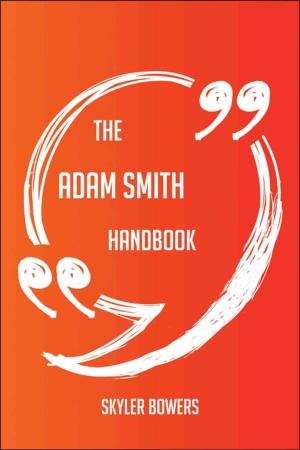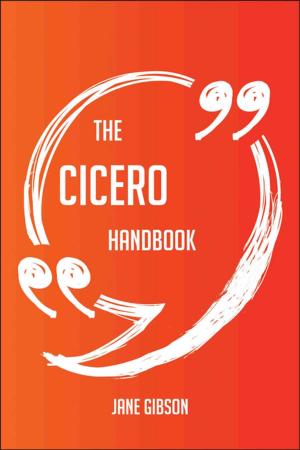| Author: | Mildred Gladys | ISBN: | 9781486427291 |
| Publisher: | Emereo Publishing | Publication: | October 24, 2012 |
| Imprint: | Emereo Publishing | Language: | English |
| Author: | Mildred Gladys |
| ISBN: | 9781486427291 |
| Publisher: | Emereo Publishing |
| Publication: | October 24, 2012 |
| Imprint: | Emereo Publishing |
| Language: | English |
Here's part of the content - you would like to know it all? Delve into this book today!..... : Though Aristotle wrote many elegant treatises and dialogues (Cicero described his literary style as a river of gold), it is thought that the majority of his writings are now lost and only about one-third of the original works have survived.
...On the other hand, Aristotle refuted Democritus's claim that the Milky Way was made up of those stars which are shaded by the earth from the sun's rays, pointing out (correctly, even if such reasoning was bound to be dismissed for a long time) that, given current astronomical demonstrations that the size of the sun is greater than that of the earth and the distance of the stars from the earth many times greater than that of the sun, then. . . the sun shines on all the stars and the earth screens none of them.
... He says [12th chapter of his Meteorics] 'the distribution of land and sea in particular regions does not endure throughout all time, but it becomes sea in those parts where it was land, and again it becomes land where it was sea, and there is reason for thinking that these changes take place according to a certain system, and within a certain period.
...According to Aristotle, if a universal exists, either as a particular or a relation, then there must have been, must be currently, or must be in the future, something on which the universal can be predicated.
There is absolutely nothing that isn't thoroughly covered in the book. It is straightforward, and does an excellent job of explaining all about Aristotle in key topics and material. There is no reason to invest in any other materials to learn about Aristotle. You'll understand it all.
Inside the Guide: Aristotle, Arete, Areopagus, Archimedes, Archilochus, Arcadocypriot Greek, Applied ethics, Apellicon of Teos, Antisthenes, Antiperistasis, Antipater, Andronicus of Rhodes, Ancient philosophy, Ancient Macedonian language, Ancient Greek technology, Ancient Greek philosophy, Ancient Greek medicine, Ancient Greek marriage law, Ancient Greek literature, Ancient Greek law, Ancient Greek dialects, Ancient Greek cuisine, Ancient Greek coinage, Ancient Greek architecture, Ancient Greece and wine, Ancient Greece, Ancient Corinth, Anaximander, Anaxagoras, Analytic philosophy, Ammonius Hermiae, American philosophy, Alfred Tarski, Alexander the Great, Alexander of Aphrodisias, Alexander Bain, Alcmaeon of Croton, Alcibiades, Alchemy, Albertus Magnus, Alberto Jori, Alasdair MacIntyre, Alan Ross Anderson, Air (classical element), Agriculture in ancient Greece, Aether (classical element), Aesthetics, Aesop, Aeschylus, Adrastus of Aphrodisias, Action theory (philosophy), Accident (philosophy)
Here's part of the content - you would like to know it all? Delve into this book today!..... : Though Aristotle wrote many elegant treatises and dialogues (Cicero described his literary style as a river of gold), it is thought that the majority of his writings are now lost and only about one-third of the original works have survived.
...On the other hand, Aristotle refuted Democritus's claim that the Milky Way was made up of those stars which are shaded by the earth from the sun's rays, pointing out (correctly, even if such reasoning was bound to be dismissed for a long time) that, given current astronomical demonstrations that the size of the sun is greater than that of the earth and the distance of the stars from the earth many times greater than that of the sun, then. . . the sun shines on all the stars and the earth screens none of them.
... He says [12th chapter of his Meteorics] 'the distribution of land and sea in particular regions does not endure throughout all time, but it becomes sea in those parts where it was land, and again it becomes land where it was sea, and there is reason for thinking that these changes take place according to a certain system, and within a certain period.
...According to Aristotle, if a universal exists, either as a particular or a relation, then there must have been, must be currently, or must be in the future, something on which the universal can be predicated.
There is absolutely nothing that isn't thoroughly covered in the book. It is straightforward, and does an excellent job of explaining all about Aristotle in key topics and material. There is no reason to invest in any other materials to learn about Aristotle. You'll understand it all.
Inside the Guide: Aristotle, Arete, Areopagus, Archimedes, Archilochus, Arcadocypriot Greek, Applied ethics, Apellicon of Teos, Antisthenes, Antiperistasis, Antipater, Andronicus of Rhodes, Ancient philosophy, Ancient Macedonian language, Ancient Greek technology, Ancient Greek philosophy, Ancient Greek medicine, Ancient Greek marriage law, Ancient Greek literature, Ancient Greek law, Ancient Greek dialects, Ancient Greek cuisine, Ancient Greek coinage, Ancient Greek architecture, Ancient Greece and wine, Ancient Greece, Ancient Corinth, Anaximander, Anaxagoras, Analytic philosophy, Ammonius Hermiae, American philosophy, Alfred Tarski, Alexander the Great, Alexander of Aphrodisias, Alexander Bain, Alcmaeon of Croton, Alcibiades, Alchemy, Albertus Magnus, Alberto Jori, Alasdair MacIntyre, Alan Ross Anderson, Air (classical element), Agriculture in ancient Greece, Aether (classical element), Aesthetics, Aesop, Aeschylus, Adrastus of Aphrodisias, Action theory (philosophy), Accident (philosophy)















